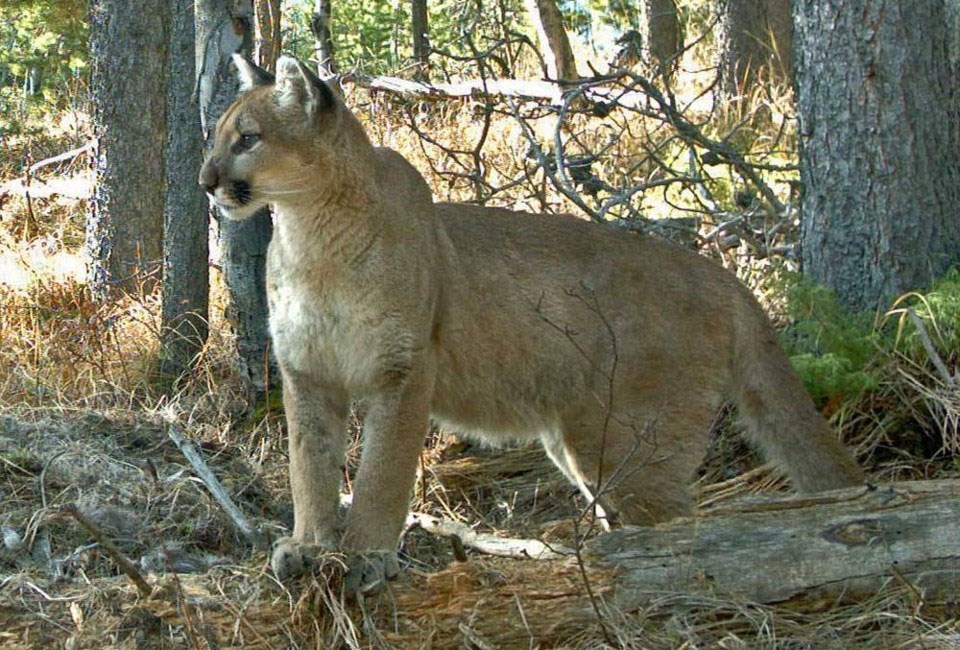OLDS — For the second time in a few weeks, residents reported seeing a cougar in Olds.
But this time, the Solicitor General’s department, which oversees Fish & Wildlife, doesn’t think that’s what they saw.
They believe it could have been a fox.
The incident occurred Sept. 21.
A cougar was also spotted Sept. 4 at least as early as about 8 a.m. near 46th Avenue and 52nd Street in Olds. It was reported to have left town about half an hour later.
On Sept. 21, also in the morning, the college began getting reports that a cougar had been sighted in its wetlands. The public was warned about that via the college’s Facebook page.
Fish & Wildlife officers were advised of that alleged sighting and residents were advised to stay away from the area.
Signage was placed around the wetlands advising anyone who believed they saw a cougar to contact campus security and/or Fish & Wildlife officers.
The Fish & Wildlife emergency number -- the 24-hour Report A Poacher line -- is 1-800-642-3800.
After a while that day, the wetlands were re-opened, it was believed the “cougar” was no longer in the area.
“Fish and wildlife officers received a report of a cougar sighting near Olds College. Upon investigation, the officer determined the animal that was sighted was a fox,” Shawna King, a communications advisor with the Justice and Solicitor General’s office wrote in an email.
King was asked if it was possible the alleged cougar could have been attracted to the compost facility at the college, as it attracts many birds and other scavengers.
King said a few sightings of cougars are made each year the area around Olds, Sundre and Didsbury.
But she said the compost facility “has not been a factor” in those sightings.
“There are about a dozen mule deer that frequent the campus daily, and in speaking with local officials, a common wildlife attractant in the area is people keeping pet food in the front and back steps of their home,” King wrote.
“There are also residences west of the college that have domestic animals, such as free-range chickens in their yards.
“Cougar encounters are rare, as most cougars are normally shy of humans and will typically leave the area if they know humans are nearby,” she added.
King had some advice for those who may see a cougar.
“If you see a cougar in the distance, do not run or turn your back,” she wrote.
“If the cougar appears to be unaware of your presence, gather children and pets in close, slowly and cautiously back away and leave the area.
“If a cougar is hissing and snarling or staring intently and tracking your movements, do not run and do not play dead. Make yourself look big and speak loudly.
“If the cougar makes contact, fight back and don’t give up. Use all means at your disposal.”
King also provided some cougar safety tips to help prevent cougars from coming to your neighbourhood:
• Never feed any kind of wildlife. Fallen bird seed or salt licks that attract wildlife such as deer to your property will in turn attract cougars and other predators.
• Avoid attracting small animals to your yard.
• Keep your garbage in a container with a tightly fitting lid.
• Keep the perimeter around your house clear of thick or tall vegetation.
• Close off open spaces under decks or patios with durable wire mesh. This will prevent cougars and other wildlife from using that space for shelter.
• Install motion-activated security lights. These may help frighten away curious cougars.
• Encourage your family and neighbours to take the same preventative measures on their property.
For more information about preventing conflict between people and wildlife, visit the Alberta Environment and Parks website.
Spokespeople for Olds College could not be reached for comment by press time.



